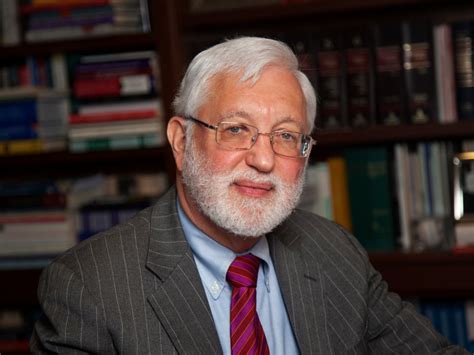A Quote by William Barr
The central genius of the American Constitution lies in its use of structure to protect individual liberty. It does not rely solely, or even primarily, on grants of substantive rights.
Related Quotes
Judges are the people who have to protect the rights of individuals, have to protect the rights of minorities, have to protect the rights in the Constitution, have to protect the requirement that the executive and the legislature not simply exercise raw power but adhere to standards of reasonableness and constitutionality.
If every person has the right to defend - even by force - his person, his liberty, and his property, then it follows that a group of men have the right to organize and support a common force to protect these rights constantly. Thus, since an individual cannot lawfully use force against the person, liberty, or property of another individual, then the common force - for the same reason - cannot lawfully be used to destroy the person, liberty, or property of individuals or groups.
Our inspired Constitution is wisely designed to protect from excesses of political power, but it can do little to protect us from the excesses of appetite or from individual indifference to great principles or institutions. Any significant unraveling of the moral fiber of the American people, therefore, finally imperils the Constitution.
The Constitution was written to protect individual freedom and limit the ability of the government to encroach upon it. The liberals don't like that. The Democrats are very unhappy. The Constitution limits government too much. So they want to rewrite it, have a second Bill of Rights. So they want a new Bill of Rights that spells out what government can do instead of a Bill of Rights that tells government what it can't do.
The Latin American has no tribe to fall back on, as the African does, no reliable judiciary to defend his rights as the European does, no social ideal or sacred constitution as the North American does, no pervasive mythology to soften life as it does in Asia, and no even an ideology to subscribe to, as does the Russian or Chinese. Without wealth, what is there left to him but his manhood, to be flaunted and defended at every occasion?
I typically don't use the distinction 'positive' and 'negative' liberty, because negative sounds bad and positive sounds good, and I don't think that the terminology ought to prejudice us one way or the other. So I think the more descriptive term is 'liberty rights' versus 'welfare rights'. So, liberty rights are freedom-of-action type rights, and welfare rights are rights-to-stuff, of various kinds...And, property rights are not rights-to-stuff. I think that's one of the key misunderstandings about property. Property rights are the rights to liberty within your jurisdiction.
In talking about human rights today, we are referring primarily to the following demands: protection of the individual against arbitrary infringement by other individuals or by the government; the right to work and to adequate earnings from work; freedom of discussion and teaching; adequate participation of the individual in the formation of his government. These human rights are nowadays recognised theoretically, although, by abundant use of formalistic, legal manoeuvres, they are being violated to a much greater extent than even a generation ago.
The existing American laws we use in a pinch just do not adequately protect artists or any other group of rental tenants. For example, artist certification. You can always get around that. Every society that does not want to really protect tenants' rights tries historic preservation. But that says nothing about the right of people to stay in their homes. It says that the building cannot be demolished. But it does not say who is allowed to live in the building.




































